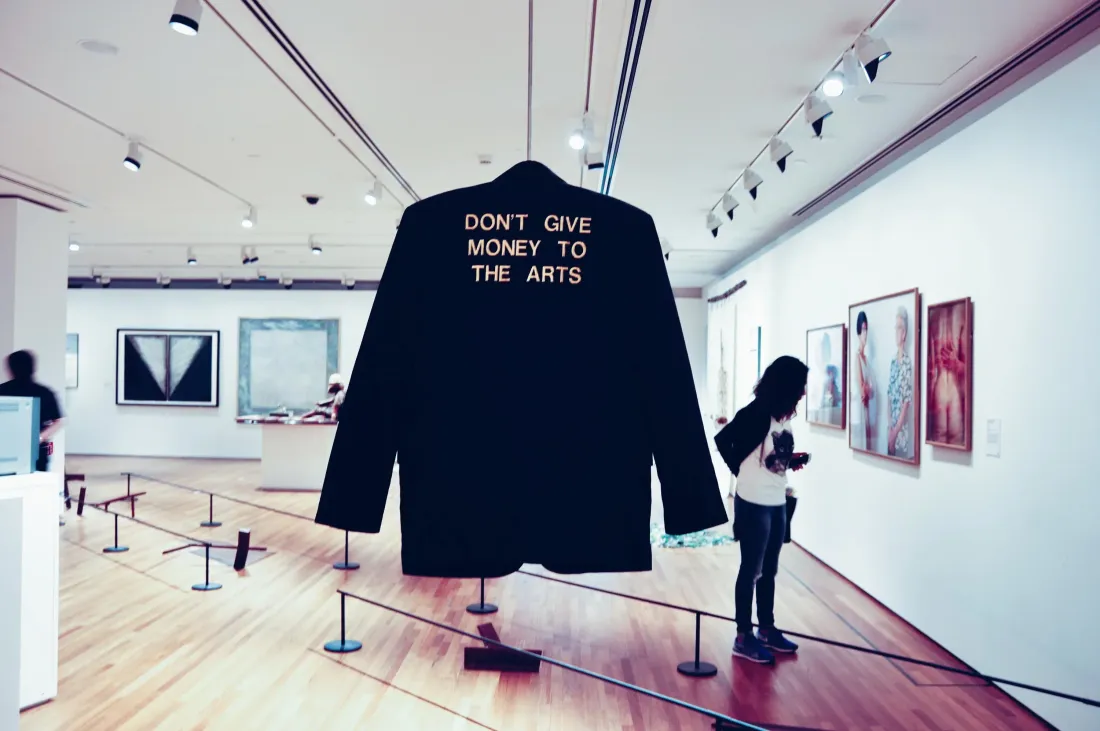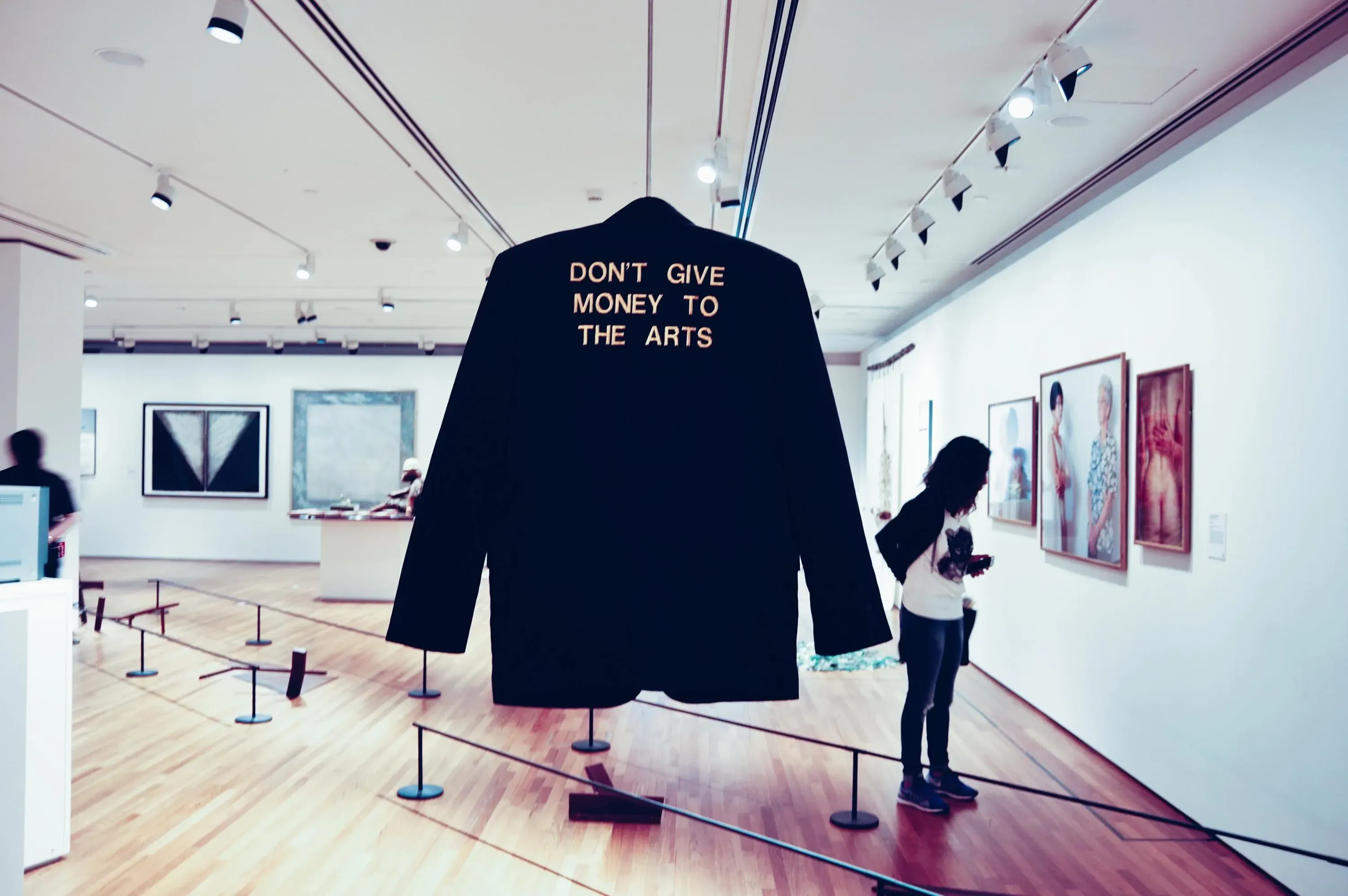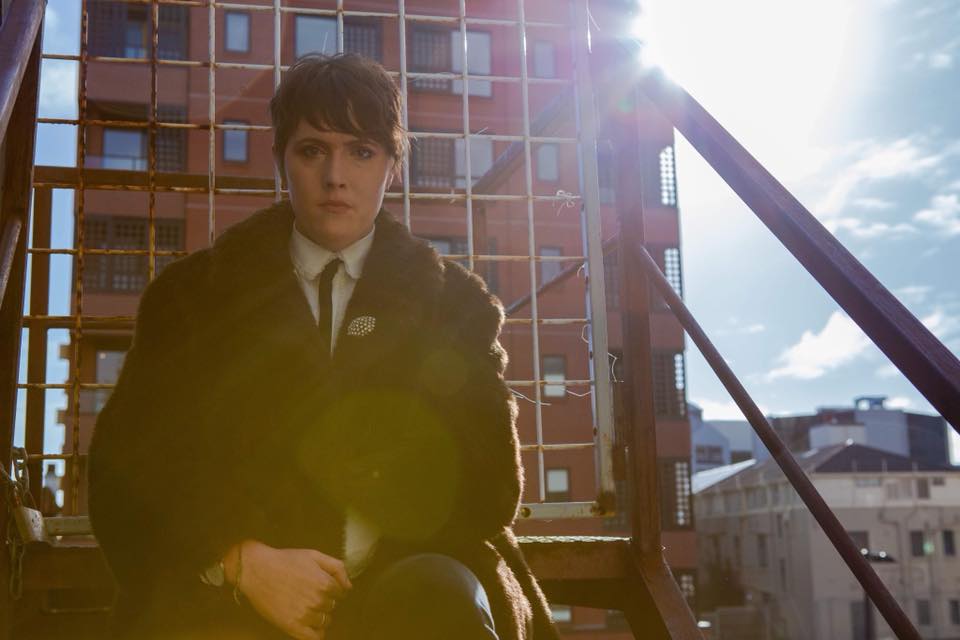SOAPBOX: There is limited art criticism in New Zealand – but it's not why you think
Written by


In a recent piece on this platform entitled Arts Critic Vanishes! Vanessa Zigliani begged the question “Why does it feel like the opportunities to read reviews of our art scene is becoming harder to find?”
As an art critic who has been actively writing since 2013, I've been privy to the modern death of arts criticism in New Zealand. Being a critic in the purist sense of the word – having firm well-written opinions has fallen out of favour – not just with our media outlets, but with our arts sector as well.

Kate Powell by @sideprojectphotography
Blaming newspapers or websites for cutting column inches in favour of stylishly inane videos or reviews the length of a Tweet is only analysing half of the equation. There is limited art criticism in New Zealand, but the reason why isn't as simple as that.
...reviews the length of a Tweet is only analysing half of the equation
I'm not sure if it’s because we've all become too comfortable in our social media echo chambers where our mates and our Mums are quick to heap praise on our latest creation. Or if it’s because the state of arts funding is so terrible that reviewers feel guilty about writing anything remotely negative lest it mar a creatives bid at dollars. The other alternative is that saying anything remotely negative about art created by New Zealanders is considered 'unpatriotic.'
It's probably a combination of all three, but it's the final point that I have dealt with in my half decade of experience. The number of times I have been called a bad New Zealander for panning local artists that have otherwise been lauded is staggering.
The vitriol that has been directed at me by publicists, artists and their fans is understandable. Hundreds of people devote themselves to the act of creating a piece of art and rely on it to pay the bills, while their audiences can glean much of their identity through the art they choose to let into their lives. It's an emotional subject.
But here's the thing:
I don't savage artists because they are from New Zealand. Nor am I a masochist actively looking for a bad time. But I do savage New Zealand creatives who produce works that - if you compare them to the global art scene- are not up to scratch. Senior Art Critic for The New York Times Jerry Saltz said that “being critical of art...is a way of showing art respect.” Giving art brownie points solely because it was created on home soil breeds a circle-jerk mediocrity that is disrespectful and pollutes our cultural landscape. Whether we are makers or critics we are both driven by a common passion for the arts and the desire to support a vibrant scene that tells stories with truth, boldness and quality, be they uniquely Aotearoa stories or universal ones.
True criticism is about discussion, discourse and feedback presented in a way that actively engages with the art without personally attacking the artist. This takes finesse in an age where everyone with a keyboard wants to shoot you down in a flurry of “@s” for having an opinion contrary to theirs. Because saying otherwise gives the reader, the artist, their publicist the space to consider a real discourse about what they are creating, which is scary. It's easier and more profitable to write a good review. People blindly go and buy tickets and fund the arts in New Zealand, which is a good thing in principle. But it does nothing to actually cultivate a culture of criticism in New Zealand or aid the creation of a robust arts scene that is world class.
True criticism is about discussion, discourse and feedback presented in a way that actively engages with the art without personally attacking the artist.
Perhaps because New Zealand artists suffered cultural cringe up until the 1970s, we now have a glut of reviewers unconditionally praising New Zealand art. Although well-intentioned, this ultimately devalues not only the work that is being created, but also those who take the time to write about it. Because when the majority of people are saying the same thing, why should a media outlet pay a critic to write about it when the intern can knock something up in between articles or find a pithy retweet?
Writing in an environment where negative reviews have become an anomaly does not benefit anyone and does not accurately reflect the true experience of art. Everybody sees art differently. Having a meaningful dialogue with art adds a texture and vibrancy that is unique to each of our lives which is a beautiful thought. By not simply skimming the surface of niceties about the work that is being created, we are elevating the awareness of art, its creators and its place in New Zealand to a much more robust standing.
So to creatives who are reading this - please don't get disheartened because of a bad review. In this instance, the old adage "there is no such thing as bad publicity" can ring true. Use it to fuel your next work. Use it to grow. Or just ignore it because it’s only one person’s opinion anyway. To publicists reading this, there is a difference between a review and a promotional piece. One is the subjective opinion of the reviewer, the other requires payment. To critics reading this – have conviction. Make art accessible. Art may be for everyone, but it can be petrifying enough to readers without our thesauruses over complicating perhaps the most human of urges. To Editors reading this – pay us.
Art critics have not vanished. We are still here writing our weekends and lunchtimes away. But we need to cultivate a space where thoughtful criticism is welcomed, encouraged and recompensed. Regardless of what you are saying, writing about art well means utilising in-demand skills that are paid for elsewhere.
It is not a mistake that the dearth of criticism has come in the exposure era. It’s deeply troubling that writers with decades-spanning credentials can’t get their Uber rides to an event covered let alone payment for their efforts. By devaluing the work of the critic, the work within the arts sector is being devalued as well.
The state of mainstream arts criticism in New Zealand is akin to the self-eating snake that is beginning to choke.
But that’s just my opinion.